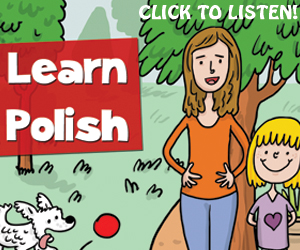The first time I embarrassed myself in Poland was when I tried to buy some sweets with a note that had dropped out of circulation in about 1954. I was only a child at the time and my Dziadzio had given it to me as some holiday money.
“Get yourself some something nice when you’re there,” he had said, patting me on the shoulder.
It turns out that the only thing I did get with the note was a laugh out of the ladies behind the counter in the main grocery store in Rabka. I suppose for them it was a nice break from the monotony of having to tell potential customers that they had run out of meat, cheese, vegetables and everything else you could think of. They always seemed to have some abrasive-looking toilet paper on the shelves though. I could never figure that one out. If you couldn’t get anything to eat, then what would you want toilet paper for?
The second time was when I was an adult, some 12 years after the fall of the Berlin Wall. I asked someone for a „lifta” home in their car from the supermarket. They had a good laugh at my expense on that occasion too. This time I managed to get what I’d asked for though.
“Lifta” was a word that my mother had used quite a bit when we were growing up. She liked to mix her English and Polish quite a bit, which left a number of people with bewildered looks on the faces after they talked to her. She would use her Poglish on anyone. Shopkeepers, schoolteachers, bus drivers, the police – you name it. She occasionally tipped over into hybrid Mediterranean and came out with words such as “scuzzi” to get past someone in a crowded supermarket aisle, but in the main it was Poglish that she used on a daily basis. And it would confuse people in England as much as it did in Poland.
Back home in London, my Poglish was never a source of embarrassment. Quite the opposite in fact. It came in very handy, particularly when I used public transport. Travelling on the Tube, if I wanted to keep a conversation with my second and third-generation immigrant friends or brothers private, then Poglish was our go-to code.
These days of course, the best way to mask what you’re saying on the Tube is to speak English. 85% of the people in your carriage won’t know what you’re on about. The other English-speaking 15% will be wearing earphones.
Now some people may scoff at Poglish, and the language purists probably view it as the devil’s own tongue, but its importance should not be underestimated. My wife and I will be using it this summer to communicate in Poland with my cousin, for example. Sitting around the ognisko, my cousin won’t be worried about whether he’s using an irregular English verb in the wrong way. And I won’t be worrying about whether I’m using the plural dative in the right place as I sip one of the new delicious craft beers that have flooded the Polish market.
Linguistic professors are always banging on about how language evolves. We’re helping contribute to that process with Poglish.
In fact, we should start having Poglish lessons. This may be the best way of bridging the gap between relatives in Poland and the UK (and the likes of the US and Canada, as well of course). That way uncles, nephews, nieces and aunts can meet half way and finally properly understand each other, without having to learn a whole new language. They’ll just have to learn half of one.
What’s more, it will bring Poland even closer to North America and the UK. And the way things are going, it’s going to have to leave the EU soon anyway.
There are many personal advantages to speaking Poglish as well. Grammatical rules go out of the window for one. You just add –a, -u, -zy, -ski or –owac to most English words and you’re already at intermediate level. Secondly, there’s no need to try and master an accent. You just speak normally.
Thirdly, you wouldn’t have boring lessons listening to some clichéd role-plays or reading passages from obscure books and then having to answer some tedious questions. Instead, you can just have conversations and make up new words, because let’s face it, Poglish is not a language that can thrive under any formal rules.
If you forget some words, no problem. You just make up some new ones. It’s like being a child all over again, playing with words, experimenting, remembering phrases, forgetting them; over and over again.
And as for resources. Well, an online dictionary for Poglish would work like Wikipedia. Anybody would be able to log on and write some new Poglish words or phrases. It could become the most dynamic language in the world.
Right, I’m off to pack for my holiday. Now where did I put my slipperzy…
Marek Handzel
Marek Handzel’s novel, The Dojang, is available now on Amazon.com.














Radek
Ha !
Jeśli możemy Ponglish, ( I prefer this form, with „n” in it as it is much natural to say) to też możemy i biednym angielskim, skoro artyluł jest po Angielsku, postaram się dopasować, szczególnie, że lubię ten język i raczej nie unikam.
I am a new to the English, mayby not the newest, over ten years already, some, moreover – a lot, of younger people after similar period speak English fluently, and for children as mine it is the first language already, although not the mother tongue.
I know power ot Ponglish, and using it is much better that to be shamed to utter a word with wrong ending.
But Ponglish should be not our aim, it is some kind of bridge, and in Polish the gangplank to the ship is called „trap”. „Iść po trapie” is probably Ponglish, so deep in language that we do not see it. Why Ponglish is the trap ? because it is our excuse for not learning language ! We assume that everybody will understand us when we add some endings to the word; „la ja la byc la głodny” doesn’t mean I will have a breakfast in Paris. The more words we know, the more grammar we use, the better results we have- even in Ponglish. I remember time when I showed an account number and money to the clerc in a bank, and said something as : „this money to this account „. I supposed it is difficult to not understand, but he was not willing to help, and it is a key – willingness to understand each other, with the mind set towards others we CAN speak with wrong words and hands, but still we MUST to know basic. Negation of must in Polish doesn’t mean must not. I remember time when my instructor said: „you mustn’t turn here”, but I knew Ponglish.
Ed (stary junak)
„Moja mama zrolowala sie ze stepsow i poszla do hospitala”
Dobry przyklad ?
Angela
I still can’t get over something I heard on Radio Kraków a few years ago…. the presenter talked about a film with a „happy endem”. I thought that was wonderful and it still makes me smile whenever I hear it!